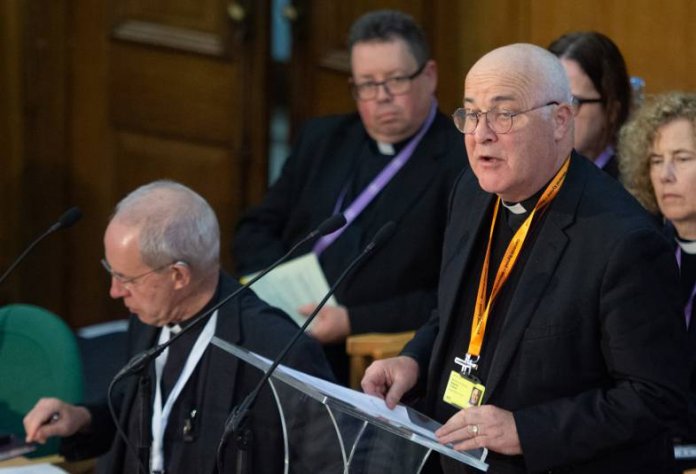Over at the U.K.’s Spectator, William Moore has penned an article with the provocative title, “Is the C of E about to say sorry for Christianity?” He writes about a report by the independent Oversight Group that addresses the Church of England’s role in African chattel slavery. Moore’s concern is with the following paragraph:
Penitence: We call for the Church of England to apologise publicly for denying that Black Africans are made in the image of God and for seeking to destroy diverse African traditional religious belief systems. This act of repair should intentionally facilitate ongoing and new sociological, historical and theological research into spiritual traditions in Africa and the diaspora, thereby enabling a fresh dialogue between African traditional belief systems and the Gospel. This work should reach beyond theological institutions and be presented in ways that will enable all Africans, especially descendants of the enslaved to discover the varied belief systems and spiritual practices of their forebears and their efficacy. We recommend the Commissioners work with all faith-based communities to which descendants of African chattel enslavement belong.
Moore has concerns with this paragraph, and those concerns are legitimate. He asks, was it not good that missionaries ended some of the practices found among African tribes? In this context, he cites among other things idolatry, witchcraft, cannibalism, and human sacrifice. And, he continues, what of the Africans who converted, many of whom paid dearly for their faith? He does not put it this way, but I might ask: Is the report implying that they were asking for trouble when they professed Christ as savior, and thus deserved their fate?
The irony of the report, of course, is that it criticizes Western imperialism, of which it sees missionaries as tools, and yet does so on the basis of the latest Western imperialist ideology: cultural relativism and the notion that claims to truth are really instrumental to power. That commitment is hard to keep contained within a single area of discourse. It is one thing to propose that missionaries were fallible human beings and acted wrongly in specific contexts. I know of nobody who would argue with that proposal. But it is quite another thing to see the missionary project as a whole as an oppressive act of cultural warfare.
Supporters of the report may respond that that is not what it claims. But there is an obvious relativism that runs throughout the document. The slippery term “faith-based communities,” for example, reduces religion to an aesthetic category—a failure (refusal?) to supply the concept with any doctrinal content. And the fact that the document offers no examples of where missionaries may have been correct (about twin infanticide, for example) confirms this.
Further, the proposals are truly pathetic. The proposed actions involve money and various pedagogical/dialogical processes. What they do not involve is the disbanding of the C of E. If the missionary endeavors of the church were as evil as the report claims, why is this not in the cards? It is hard to imagine a scenario in postwar Europe where an independent commission concluded that the S.S. had committed crimes against humanity but that the solution was a large financial payment that left the institution itself penitent but intact. That would have been a joke. Indeed, a sick joke. The proposed C of E apology will cost the organization in general 100 million pounds, but it will cost nobody in particular anything. The organization will remain. It will continue to be a source of income for many and (for some) a source of social status. Indeed, it will provide a platform for those such as Archbishop Justin Welby to offer lavish apologies for the sins of others and thereby reassure the watching world that he still deserves his status and their respect—though today that will look more like an act of wishful thinking than actual reality. And that’s what makes such proposals attractive: the thrill of cost-free righteousness that really leaves everything just as it was before. If the C of E accepts the report, we will know if the repentance is true to the extent that it actually costs the church something. Perhaps, as Kierkegaard argued, withdrawing pensions and status from such people would be a better way of telling how much they really witness to the truth.
Of course, there is another way. Read it all in First Things



